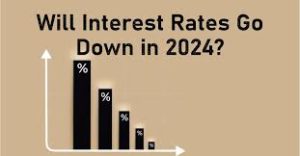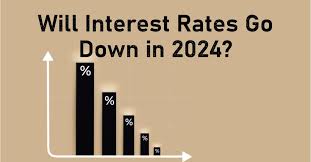When Will Interest Rates Go Down?
As many have noted, interest rates have skyrocketed since a long campaign by the Federal Reserve to combat inflation. But that does not signal

lower rates any time soon – instead it appears likely that they’ll increase again next year.
If the economy slows or stalls, the Federal Reserve may reduce rates to stimulate spending by consumers and businesses alike. Their goal is 2% inflation – something they achieved after years of near zero inflation – but if prices begin rising again the Fed could raise rates to slow consumer spending and curb inflation.
Homeowners facing higher interest rates could find buying or refinancing more costly. Therefore, homeowners should track trends in mortgage rates as one of the main indicators that the economy may be slowing down.
Thirty-year mortgage rates often track the yield on 10-year Treasury notes issued by the U.S. federal government. When investors become nervous about the economy, they turn to safer investments like these securities – driving prices higher while simultaneously driving yields down. Since January, 10-year Treasury yield has averaged around 2.5 percent while 30-year mortgage rates have steadily increased to 6.7% ranges.
The Federal Reserve may take some time before cutting rates again, given that it remains focused on deflating the housing bubble and reining in prices. Furthermore, inflation has yet to reach their desired 2% goal so they won’t feel comfortable cutting rates too soon in case doing so leads to further economic slowdown or out-of-control price inflation.
Unless the Federal Reserve decides to significantly cut rates, mortgage rates won’t likely experience much of a change from potential Federal cuts; bond market participants already factored in some reductions this year and so there shouldn’t be much of an effect. Mortgage rates might drop however if economic data confirms prices are cooling.
No one knows for certain whether rates will decrease, but you can be prepared for that possibility by prioritizing savings and debt payoff goals. Higher interest rates means getting more for every dollar saved, and lower mortgage rates could save thousands in interest over the life of a loan. If you are ready to buy, now may be the right time to start searching and find an experienced lender – don’t delay too long, as mortgage rates have reached historical high levels; with some lenders requiring at least 620 credit score as the minimum requirement to qualify, qualifying could make getting approved easier than ever.

